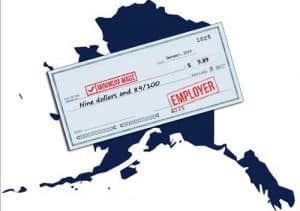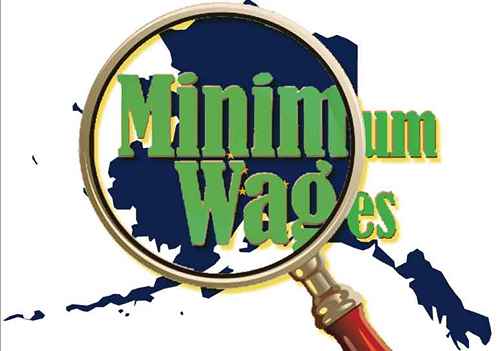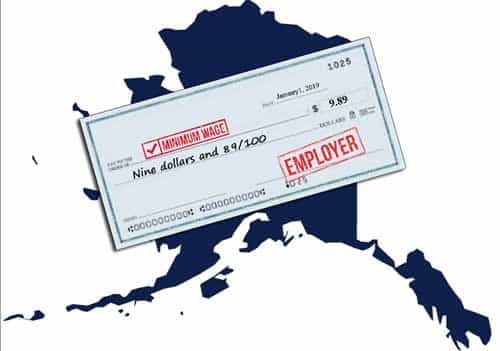 JUNEAU, Alaska—The Alaska minimum wage will increase from $9.84 to $9.89 in 2019. Voters passed a ballot initiative in 2014 to raise the minimum wage by one dollar in both 2015 and 2016, and thereafter required the rate to be adjusted annually for inflation.
JUNEAU, Alaska—The Alaska minimum wage will increase from $9.84 to $9.89 in 2019. Voters passed a ballot initiative in 2014 to raise the minimum wage by one dollar in both 2015 and 2016, and thereafter required the rate to be adjusted annually for inflation.
Alaska Statute 23.10.065(a) requires the Alaska minimum wage to be adjusted using the Consumer Price Index for urban consumers in the Anchorage metropolitan area (Anchorage CPI-U) for the preceding calendar year. The Anchorage CPI-U increased 0.5 percent in 2016, rising from 217.830 to 218.873. As a result, the minimum wage will rise from $9.84 to $9.89 effective January 1, 2019. By law, Alaska’s minimum wage must remain at least $1 per hour over the federal minimum wage.
The Alaska minimum wage applies to all hours worked in a pay period, regardless of how the employee is paid: whether by time, piece, commission, or otherwise. All actual hours worked in a pay period multiplied by the Alaska minimum wage is the very least an employee can be compensated by an employer.
[content id=”79272″]
Tips do not count toward the minimum wage. Under Alaska law, public school bus driver wages must be not less than twice minimum wage. Also, certain employees must be paid on a salary rate not less than twice minimum wage based on a 40-hour work week in order to maintain exempt status.
More information about Alaska’s wage laws can be found at: https://labor.alaska.gov/lss/whhome.htm.




